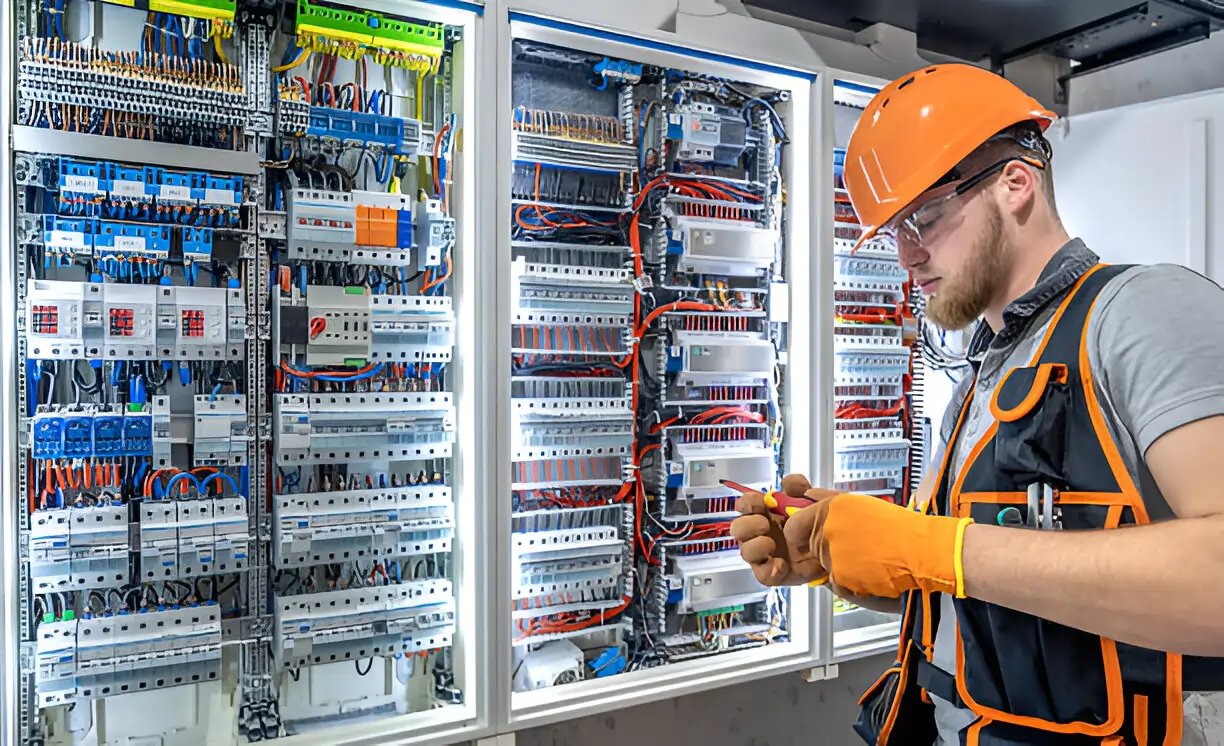Large-scale electrical installations are critical to the infrastructure of commercial buildings, industrial sites, and public facilities. These complex systems power everything from lighting and HVAC to production machinery and emergency systems. With this level of responsibility comes a non-negotiable demand for safety. A single oversight can result in severe consequences, including equipment failure, electrical fires, or even loss of life. Ensuring safety in such installations requires detailed planning, skilled professionals, and ongoing oversight. This is where the expertise of commercial electricians becomes essential.
Professional Expertise Is Non-Negotiable
At the core of any safe electrical system is the knowledge and competence of the people who design and install it. Commercial electricians are specifically trained to handle the complexities of large-scale systems. They are licensed, experienced, and knowledgeable about the codes and regulations that govern commercial work.
While it might be tempting to reduce costs by relying on in-house maintenance staff or general contractors for electrical work, doing so greatly increases the risk of unsafe installations. Commercial electricians understand load calculations, grounding requirements, panel distribution, and other critical elements that ensure the safe operation of complex systems. They also keep up with changes to national and local electrical codes, which evolve regularly to reflect best practices and safety improvements.
Compliance With Codes and Standards
National and local electrical codes exist for a reason—they protect buildings and the people inside them. One of the first steps to ensuring safety in large-scale installations is full compliance with the National Electrical Code (NEC), as well as any local jurisdictional requirements. Commercial electricians are trained to navigate these requirements and ensure every installation passes inspection.
Compliance doesn’t just apply at the point of installation. Safety audits, upgrades, and expansions must also meet the same standards. Whether wiring a new office building or upgrading electrical infrastructure in a factory, only qualified commercial electricians can guarantee that all work remains code-compliant and safe.
Proper Planning and Load Management
Inadequate load planning is one of the leading causes of electrical failure in large-scale installations. Improper load distribution can result in overloaded circuits, overheating, or damaged equipment. Commercial electricians perform detailed load calculations to ensure the system is capable of handling peak power demands without compromising safety or efficiency.
They also design systems with flexibility in mind, allowing for future expansions without the need for unsafe or ad hoc modifications. This kind of foresight protects both the building’s occupants and its infrastructure, ensuring a long-term return on investment and operational reliability.
The Importance of High-Quality Components
Using cheap or unverified components is a major risk in large-scale installations. Electrical failures often trace back to poor-quality breakers, substandard wiring, or connectors that can’t handle commercial-level power loads. Commercial electricians work with trusted suppliers and manufacturers to ensure that only high-quality, rated components are used.
These professionals know how to evaluate and select the right materials based on the project’s unique needs—whether that means explosion-proof panels in industrial zones, weather-resistant conduits for outdoor systems, or fire-rated cable systems for multi-story buildings.
Routine Inspections and Maintenance
Safety doesn’t end once the installation is complete. Regular inspections and preventive maintenance are vital for catching issues before they become major hazards. Commercial electricians offer ongoing services to monitor systems, identify early signs of wear or degradation, and make necessary upgrades.
They also provide testing services for critical systems such as backup generators, emergency lighting, and fire alarm circuits, ensuring these systems function properly during emergencies. Scheduled inspections help avoid costly downtime, reduce liability, and maintain a safe environment for everyone working or visiting the facility.
Safety Training and Documentation
Large-scale electrical safety also involves training staff and maintaining clear documentation. While commercial electricians are responsible for the installation and service, building managers and maintenance staff must know how to respond to issues safely. That includes understanding the location of shutoffs, interpreting warning signs, and knowing when to call in professionals.
Proper documentation, including as-built drawings, maintenance logs, and inspection reports, ensures that future upgrades or repairs can be done safely and accurately. Commercial electricians often provide these documents at the close of a project, offering a complete overview of the system for future reference.
Working With Licensed Commercial Electricians
Ultimately, safety in large-scale electrical systems boils down to who you trust with the work. Choosing experienced, licensed commercial electricians ensures that every part of the installation—from design to final testing—is handled with professionalism and care. These electricians understand how to balance the technical and regulatory demands of commercial projects with the real-world needs of building owners and users.
The difference between a safe installation and a dangerous one often comes down to details that only skilled professionals can manage effectively. By investing in qualified commercial electricians, businesses safeguard their property, protect lives, and meet all regulatory obligations.
Conclusion
Ensuring safety in large-scale electrical installations is not just a technical challenge—it’s a responsibility. From initial planning and code compliance to long-term maintenance and documentation, every step must be executed with precision and care. Relying on licensed, experienced commercial electricians is the most effective way to ensure that complex systems operate safely, efficiently, and reliably for years to come.
Read more: How Can You Achieve a Seamless Look for Modern Bathroom Designs?
What Should You Ask Before Starting a Major Home Upgrade?
Which SAFe Certification Should You Choose First




